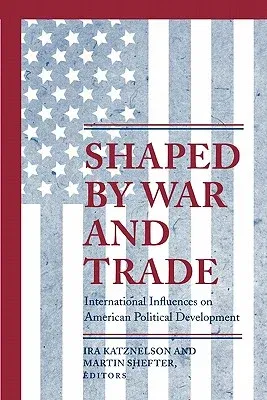In the twenty-first century, globalization poses major challenges to the
key players in U.S. domestic politics--challenges similar to many that
Americans have faced from abroad since the nation's founding. But it is
only in recent decades that links have been drawn between the study of
American political development and international relations; even now,
emphasis falls primarily on how domestic politics affects the world
arena. This book redresses the imbalance.
Ten leading scholars explore how, over the past two centuries, the
changing positions of the United States in the world economy and in the
international political order have shaped U.S. political institutions
and domestic politics. Ira Katznelson, Aristide R. Zolberg, and Robert
O. Keohane demonstrate the central role that efforts to contend with
foreign military and economic competition played in forming the major
institutions of U.S. government from the framing of the Constitution
through the Civil War. Martin Shefter, Theda Skocpol (writing with Ziad
Munson, Andrew Karch, and Bayliss Camp), Ronald Rogowski, and Judith
Goldstein show how the nation's political institutions were transformed
by problems of war and trade the U.S. subsequently faced. Aaron L.
Friedberg, Bartholomew H. Sparrow, and Peter A. Gourevitch conclude the
volume by analyzing how international conflicts during and after the
Cold War influenced governmental institutions and domestic politics in
the United States over the past fifty years. Shaped by War and Trade
sets the agenda for further exploration of a topic whose discussion is
long overdue.

